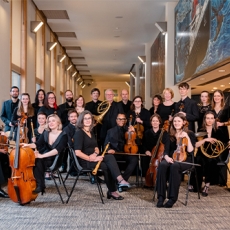Dunedin Consort - Monteverdi: Vespers 1610 - Primephonic
2017 marks the 450th anniversary of the birth of Claudio Monteverdi, the greatest musical innovator of his age. Caught on the cusp between the Renaissance and the Baroque, he claimed his place in history as the father of opera with three seminal masterpieces – L’Orfeo, Il ritorno d’Ulisse in Patria and L’incoronazione di Poppea – that remain in the repertoire today.
No less revolutionary were the Vespro della Beata Vergine (‘Vespers for the Blessed Virgin’ – more commonly known as the Vespers (‘evening prayers’) of 1610; a work that remained unmatched in scale or ambition until Bach’s great Passions a century and more later. Conceived with the grandest of designs, it daringly incorporates secular music alongside sacred idioms, employs several instrumental and song forms (sonata, motet, hymn and psalm) and requires shape-shifting permutations from the chorus. It also demands previously unheard of vocal dexterity in its daring blending of polyphony, virtuoso coloratura, solo passages and duets.
Such innovation – and not least under the censorious eye of the church – was accommodated by music that deftly blended tradition and modernity with almost insouciant ease. There are several fine recordings already in the catalogue, but this new offering from John Butt makes much of recent scholarship to deliver a reading that dispenses with plainsong antiphons and much else to sound both fresh and vital.
Devotees of a more luxurious sound in this music may initially find Butt’s more streamlined approach something of a surprise – textures noticeably thinner, instrumental accompaniment leaner, tempi markedly more measured in places. Yet, his judicious leaning towards one voice per part, smaller choral forces (a maximum of 10 here) and reduced instrumental resources (no more than 20) imbues the Biblical texts with a brilliant, cut-crystal clarity. The spacious, superbly recorded acoustic of Edinburgh’s Grey Kirk lends a becoming halo throughout, sublimely so in the other-worldly answer-and-call of ‘Audi coelum’ and, more so, in the transcendent ‘Gloria Patri’.
Most striking is the involving intimacy of a performance that satisfies liturgical need while also remaining alert to the expectations of the contemporary listener. Try the ‘Sonata sopra Sancta Maria’ for a demonstration of Butt’s adroit blending and balancing of church and concert hall: sopranos Joanne Lunn and Esther Brazil luminous and ethereal within the glowing, period-brass corporeality of His Majestys Sagbutts & Cornetts.
In a word: blissful.
Performance: four stars
Sound: five stars


